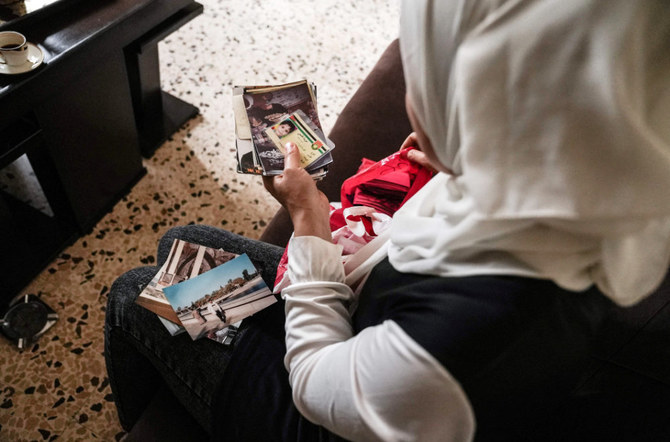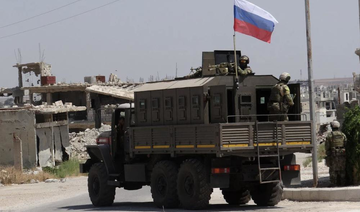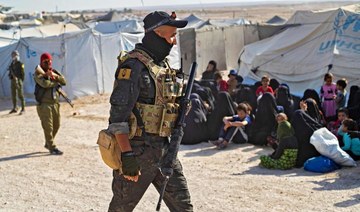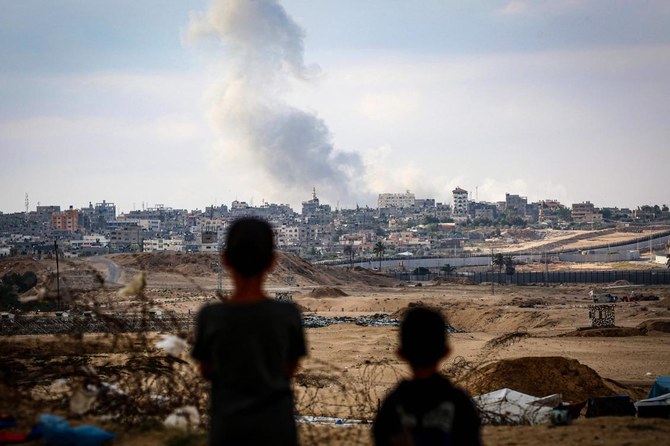BEKAA VALLEY, Lebanon: In the decade since Syria’s regime pronounced her jailed husband dead, Ramya Al-Sous was threatened by security forces, locked out of her spouse’s estate and forced to flee abroad.
The mother of three, now a refugee living in Lebanon, was never told how her husband died and is unable to sell or rent the properties confiscated by authorities.
“By virtue of me being a woman, everything becomes nearly impossible,” she said, echoing a plight shared by many wives and widows of Syrian prisoners.
But the 40-year-old wants to put up a fight.
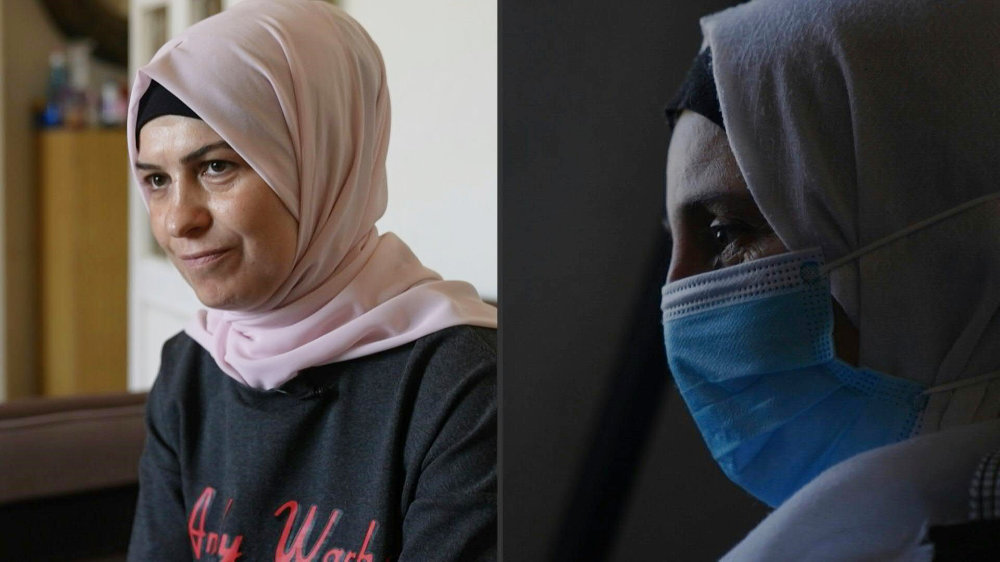
Syrian refugees Ramya al-Sous and Tuqqa recount the hardships they face living in Lebanon's Bekaa Valley after their husbands either died or disappeared in Syrian prisons. "I lost people... but I became a strong woman", says 45-year-old Tuqqa. (AFP)
“My children would not have suffered as much if it had been me who was detained. They were left with nothing, but I insist on winning something back,” she said.
Syrian President Bashar Assad’s regime waged a brutal crackdown on an Arab Spring-inspired uprising in 2011, sparking a war that has killed nearly half a million people.
Around the same number of people, mostly men, are estimated to have been detained in regime prisons since, with tens of thousands dying either under torture or due to poor conditions.
Outside prison walls, their wives are anything but free, facing a maze of red tape in a society and legal system that favors men, said Ghazwan Kronfol, a Syrian lawyer living in Istanbul.
Without their husbands’ formal death certificates, widows cannot claim inheritance or property ownership, he said.
Nor can they access their dead husbands’ real estate if it was confiscated or escrowed by the state, the lawyer added.
Worse still, guardianship over their children is not guaranteed, with judges often granting it to a male next of kin.
“All of this comes on top of financial blackmail and sexual harassment” by security officers, Kronfol said.
Syria’s 2012 anti-terrorism law stipulates the government can temporarily or permanently seize the properties of prisoners accused of terrorism — a blanket charge used to detain civilians suspected of opposition links.
The government is believed to have seized $1.54 billion worth of prisoner assets since 2011, according to an April report by The Association of Detainees and The Missing in Sednaya Prison.
The Turkey-based watchdog was founded by former detainees held in Sednaya, a jail on the outskirts of Damascus which is the largest in the country and has become a by-word for torture and the darkest abuses of the Syrian regime.
Sous’s home and farmland were among the properties escrowed after her husband was arrested in a raid in 2013 and later hit with terrorism-related charges she says were trumped up.
A few months later, authorities handed her a “corpse number”, she said.
Alone and poor, she spent years being bounced around from one security branch to another as she tried to clear bureaucratic hurdles.
Sous said she was met mainly with harassment and intimidation.
“Women are easy prey,” she said.
Fearing persecution by security forces, she fled to Lebanon in 2016, clutching the old red and white plastic bag in which she keeps her property deeds and reams of other official documents.
She has little money left but continues to pay bribes and lawyer fees in an attempt to reclaim assets from the state.
“I want to sell them, not for me but for my children.”
Salma, a 43-year-old mother of four, also fled to Lebanon after her husband disappeared inside the black hole of Syria’s prison system.
The one time she enquired about his fate in 2015, security forces locked her in a room and threatened her.
“I never asked about him again,” Salma said, asking to use a pseudonym due to security concerns.
When she tried to sell her husband’s car and home, she found they had been seized by the state.
“I sold all my jewelry to buy that house,” she said.
In their ordeal, some women have found a rare silver lining with the empowerment that being left to their own devices has brought about.
Tuqqa, a 45-year-old mother of five whose husband also disappeared in prison, argued her life was already hard before the war due to social and religious conservatism.
“I wasn’t even allowed to open the front door of the house, let alone go out to buy groceries or bread,” she said.
But all that changed when she became the sole guardian of her children.
She eventually moved to Lebanon, where she secured work and attended livelihood trainings and workshops run by aid groups, a leap from her previously sheltered life.
When she was sexually harassed by her landlord, she blamed herself: “That is what we were taught: women are always to blame.”
Her children may not inherit a family home from their father but Tuqqa is adamant they will inherit new values from her.
“I am not raising my children the way I was raised,” she said.
“War has given women strength. They are learning how to say ‘no’,” said a Damascus lawyer.
While the odds are stacked against her, Tuqqa said she feels ready to face the challenges ahead.
“I lost a lot, but I became a strong woman,” Tuqqa said.
“I am no longer the woman living behind closed doors.”



